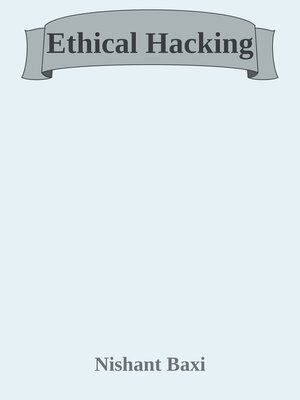
Sign up to save your library
With an OverDrive account, you can save your favorite libraries for at-a-glance information about availability. Find out more about OverDrive accounts.
Find this title in Libby, the library reading app by OverDrive.



Search for a digital library with this title
Title found at these libraries:
| Library Name | Distance |
|---|---|
| Loading... |
Definition of Ethical Hacking
With the world becoming dependent on digital technology, the topic of cybersecurity has ascended to prompt global attention, provoking the rise of an intriguing phenomenon known as 'Ethical Hacking'. The Oxford Dictionary defines this concept as "the activity of legally breaking into computers and devices to test an organization's defenses" (Oxford Languages, 2019). Essentially, ethical hacking involves using hacking skills and tools to identify system vulnerabilities and secure them, rather than exploiting them illicitly.
The origins of ethical hacking can be traced back to the 1970s when the United States government first hired groups to hack into their systems (Palmer, 2001). Known as 'White Hat Hackers', these ethical hackers are the good guys of the hacking landscape, distinguished from 'Black Hat Hackers', who use their skills maliciously, and 'Gray Hat Hackers', who operate in the ambiguous middle ground.
White hat hackers, or ethical hackers, are cybersecurity professionals who use their extensive knowledge and experience to secure and protect systems. They regularly carry out penetration testing, risk assessments, and vulnerability assessments, frequently using the same methodologies and tools as their malicious counterparts but with the crucial difference of having the proper authorization to do so.
Working under a set of ethical guidelines, ethical hackers disclose all vulnerabilities and findings to respective entity owners, do not exploit the vulnerabilities discovered beyond the scope of the work, and ensure that client data privacy is maintained throughout the process. Professional ethical hackers often hold industry-recognized qualifications, such as the Certified Ethical Hacker(CEH) designation by the EC-Council (EC-Council, 2020).
The role of ethical hacking in modern society cannot be understated, given the ubiquity of interconnected technology in both personal and professional spheres. Ethical hackers essentially act as digital guards, protecting sensitive data and systems from malicious threats.







